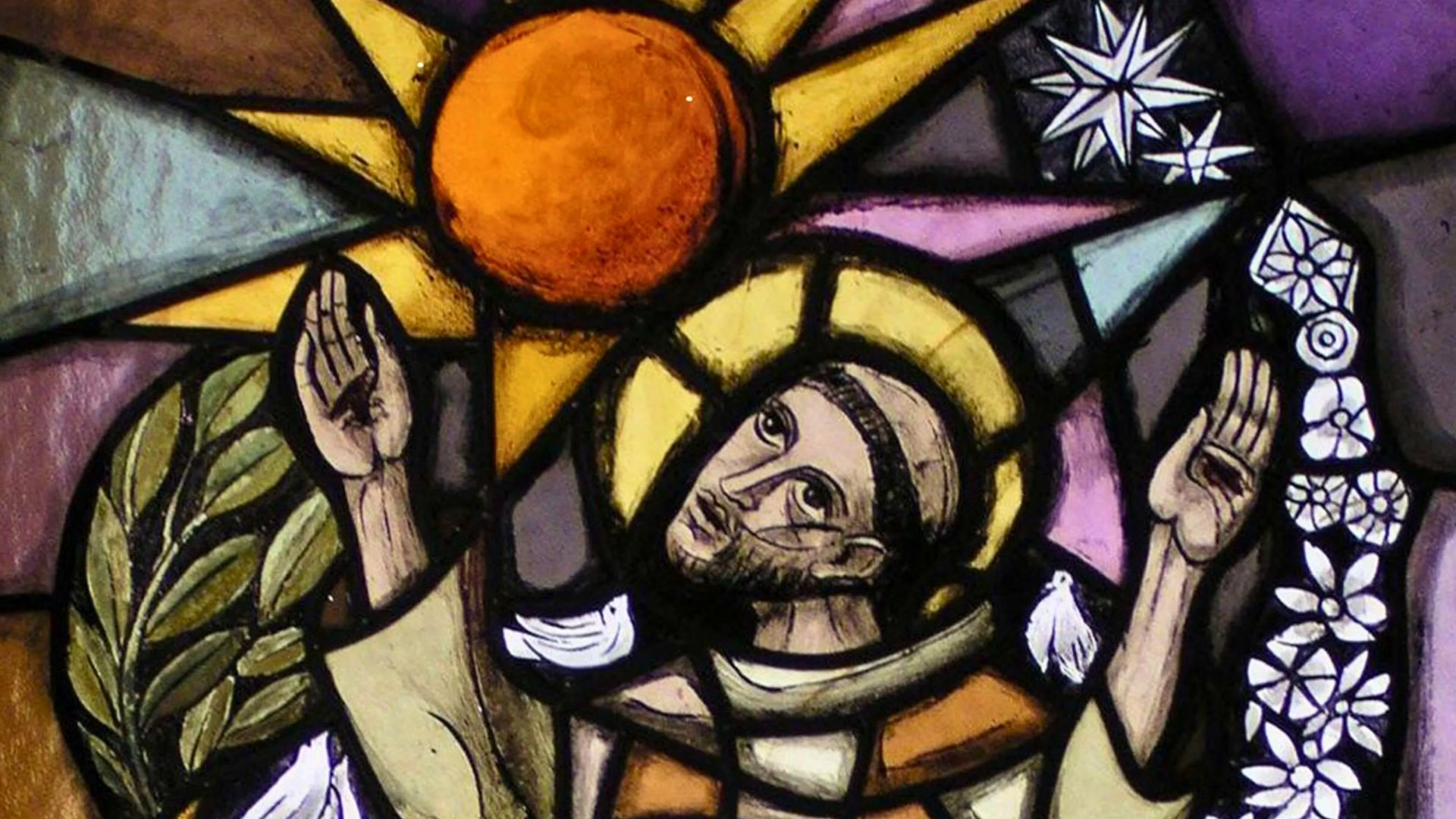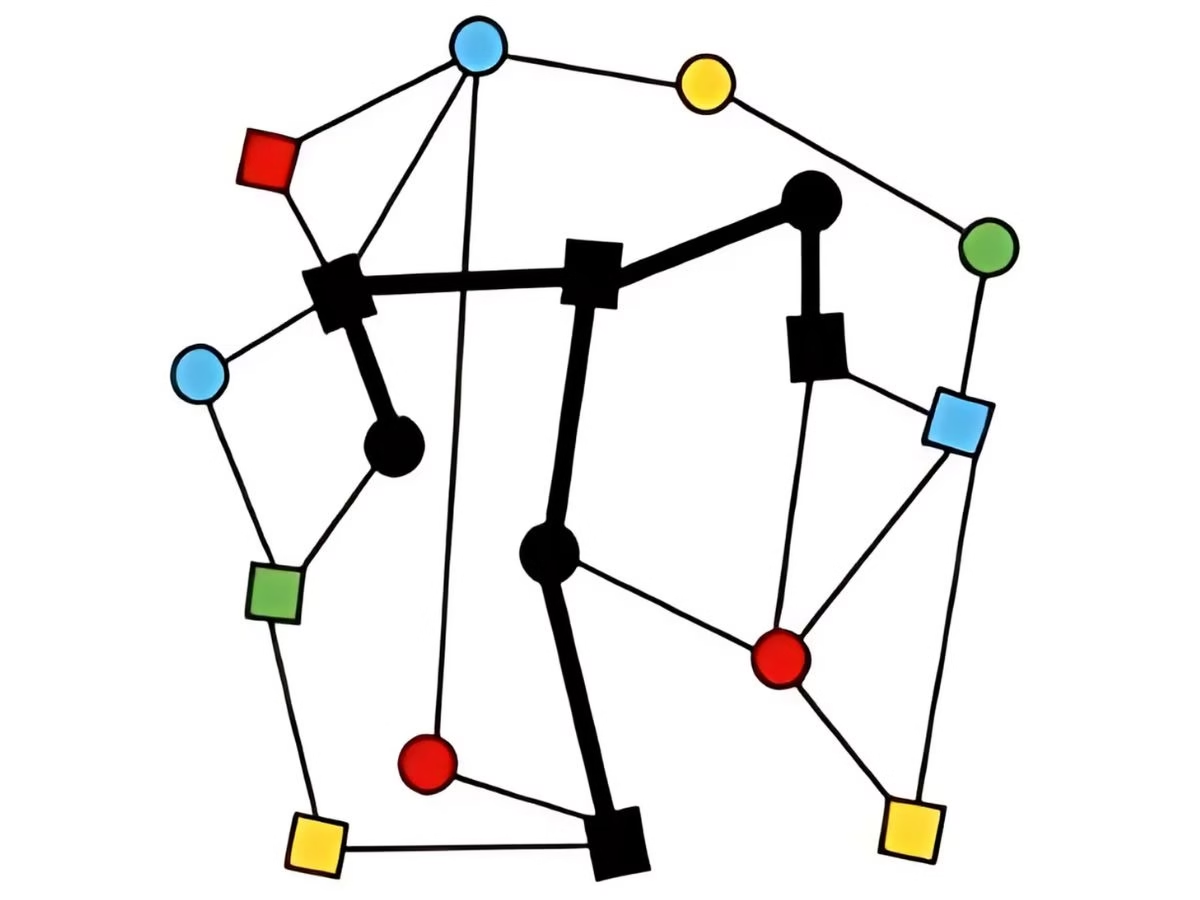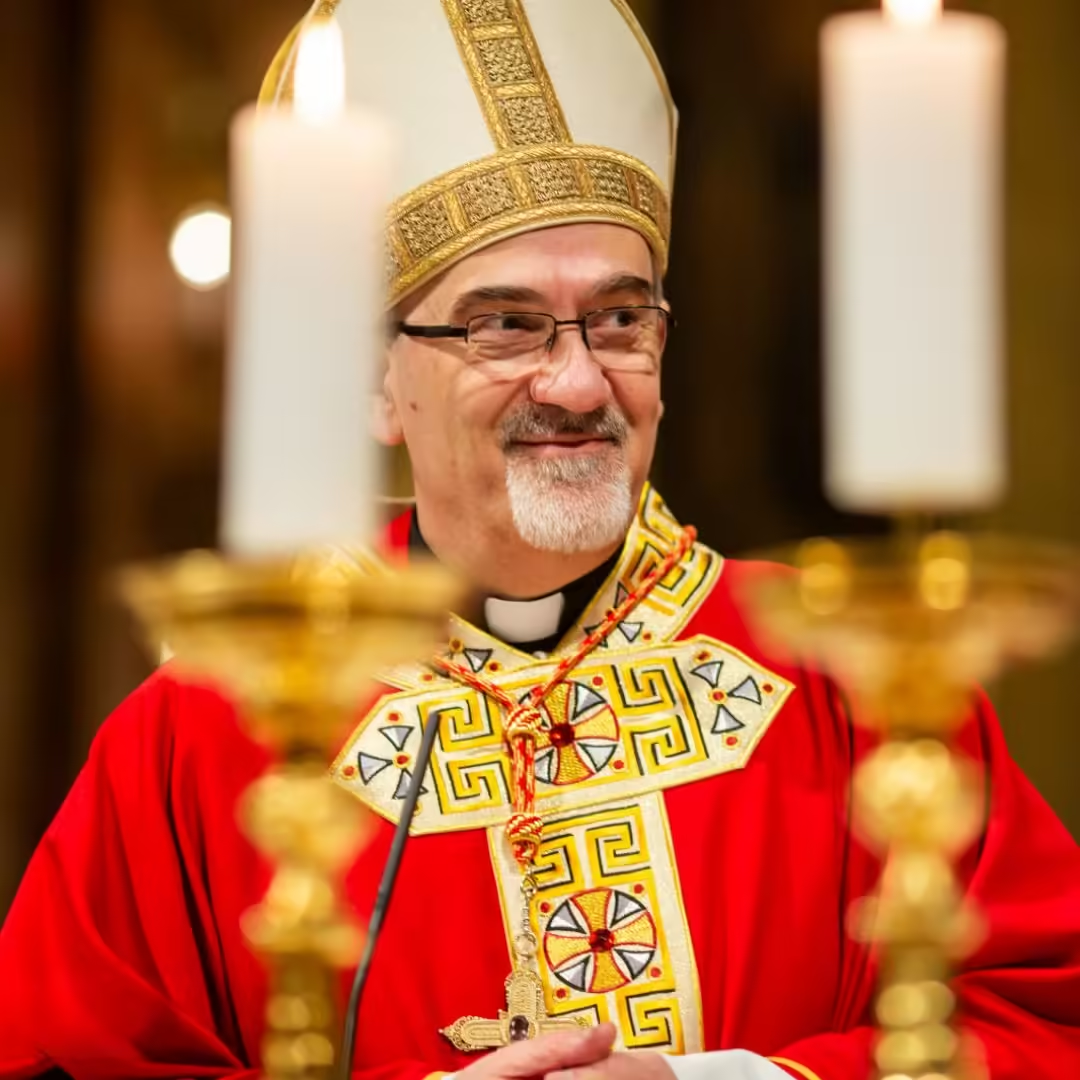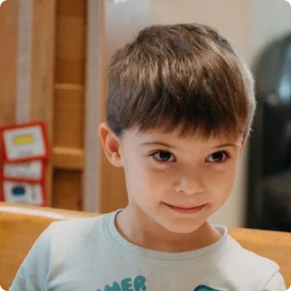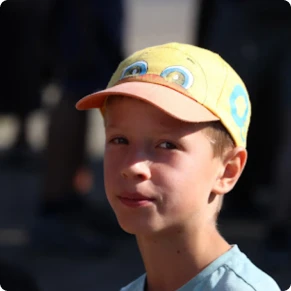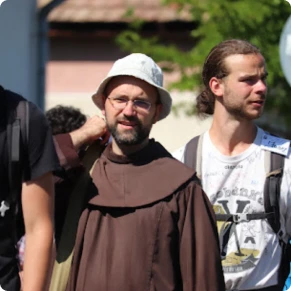Hivatásunk az Evangéliumon alapul, a szemlélődő tapasztalat táplálja és a testvéri közösségben ölt formát – Jézus nyomdokain, Assisi Szent Ferenc példájára.
Alapítónk szándéka szerint a nevünk: Kisebb Testvérek Rendje (Ordo Fratrum Minorum).
A Magyarok Nagyasszonya Ferences Rendtartomány a rendalapító, Assisi Szent Ferenc boldog halálának, tranzitusának ünnepe alkalmából 2022. október 4-én az alábbi üzenetet tette közzé. A ferences üzenetet a magyar eredeti alatt angol és olasz nyelven is megtalálják.
* * *
Kedves Testvérek!
AZ ÚR ADJON NEKED BÉKÉT!
Assisi Szent Ferenc földi élete 1226. október 4. előestéjén ért véget. Mi, az ő testvéri közössége, évről évre mégsem halálára emlékezünk, hanem boldog átmenetelét (tranzitusát) ünnepeljük. Kisebb testvérré lett, egyszerűen és örömmel hirdette Jézus Krisztus Evangéliumát, énekelve dicsérte a Teremtőt, aki egyedül jó. Példáját követve mi is szívből megvalljuk: egyedül Isten jó. „Ő az áldás, ő a béke.” Mi, magyar ferencesek, Őt akarjuk befogadni és Őt, az áldást és a békét mindenkinek továbbadni.
Ez a szándék vezet különösen a mai időkben, amikor oly sok dolog aggodalmat kelt bennünk, körülöttünk. Miközben mindennapjaink békességét és jólétét fenyegetve érezzük a szomszédos országban dúló háború, az energiaválság vagy más külső körülmények miatt, egy belső elbizonytalanodást is tapasztalunk. Sokan kérdeznek minket, ferenceseket, miről mit gondolunk, s a kérdezés mögött gyakran ott a tanácstalanság és az aggodalom. Miközben körülöttünk annyi biztosnak hitt dologról kiderül, hogy csak átmeneti, úgy érezhetjük, mintha a mi életünkből is elveszett volna a biztos támpont.
Ehhez társul az a jelenség is, hogy társadalmunkban általánosan jelen van hitünk és hívő életünk egyes elemeinek vagy alapvető igazságainak megkérdőjelezése, akár a magukat hívőnek kijelentő emberek körében is. Vannak olyan társadalmi változások, eszmék és gyakorlatok, amelyek gyakran keresztény gyökerű – vagy legalábbis a keresztény gondolkodásban és életben is használt – kifejezésekkel élnek (pl. lelkiismeret, szabadság, személy, tolerancia, szeretet), de épp a gyökértől, Isten létének igazságától, jelenvalóságától elszakítva, elszakadva istentelen zűrzavart produkálnak. Mindez nem kis bizonytalanságot okoz hívők és nem hívők körében egyaránt. Sok világi és szerzetes testvérünkkel együtt keressük, hogyan tudunk igaz és hiteles választ adni minderre.
Bűnbánat
Mindenekelőtt beismerjük, hogy gyakran a mi bűneink is akadályai annak, hogy Isten jóságát felismerjék és elhiggyék körülöttünk. Bánunk minden olyan alkalmat az életünkben és szolgálatainkban, amikor Isten Örömhírét elfedte a mi önzésünk, a mi bűneink. Ezekért bocsánatot kérünk, elsősorban Istentől, de azoktól az embertársainktól is, akiket megbántottunk, akik elől ezzel eltakartuk a Napot.
A Teremtő dicsérete
Kisebb testvérként, szerzetesi fogadalmaink által, relativizmustól és önzéstől szenvedő világunkban ragaszkodunk Jézus Krisztus személyéhez, aki az Igazság, és mint ilyen, számunkra nem viszonylagos, nem megkérdőjelezhető. Benne és általa vagyunk közösségben Istennel és egymással is. Ez az alapvető döntés határozza meg életünket, ember- és világképünket. Ezt a szemléletmódot jól kifejezi a Naphimnusz, rendalapítónk imádságos éneke, amelyben az egész teremtett világgal együtt dicséri az Urat. E teremtett világban nem a sötétség uralkodik, hanem a Nap, amely a Legfölségesebb képe.
A Teremtő dicsérete: testvérként élni
Szent Ferenc atyánk lelkületével Isten ajándékaként elfogadjuk az egész teremtett valóságot, benne testvéreinket és önmagunkat is. A testvéri élet számunkra elsősorban nem elmélet vagy ideológia, hanem konkrét életforma, amelyben megtanulunk szeretni, áldozatot hozni, önmagunkból adni, és megosztani, amink van, soha nem különbnek tartva magunkat a másiknál.
A Teremtő dicsérete: életigenlés és az emberi méltóság tisztelete
Emberi élet
A Teremtő Isten szeretete kötelez minket a teremtés, és mindenekelőtt a Teremtő Lélek által életre lehelt ember föltétlen tiszteletére, elfogadására. Ebből fakadóan elutasítjuk a gyilkolás minden fajtáját: az abortuszt, az eutanáziát, a háborús öldöklést, népirtást vagy a békétlenségből, haszonszerzésből elkövetett emberölést. Ugyanígy elutasítunk minden, az emberi életet nem tisztelő, azt kiiktató, manipuláló vagy abba önző módon beavatkozó, természetidegen eljárást is. Ugyanakkor testvéri figyelemmel akarunk fordulni a környezetünkben lévő minden testi vagy lelki szenvedéssel élő embertársunk felé, a Gondviselést kérve, és tőlünk telhetően enyhítve szenvedésüket. Elhatározásunk az is, hogy támogassuk a családokat. Úgy tekintünk minden családra, mint amely az emberi személy elfogadásának, növekedésének legfőbb helye, s amely a szeretetkapcsolatok iskolájaként a társadalom alapvető intézménye. Szándékunk azok felé is szeretettel fordulni, felajánlva a magunk lelki családját, akik család nélkül vagy sebzett, bizalomvesztett, zűrzavaros, békétlen családban élnek a világban. Elkötelezettek vagyunk a gyermek- és ifjúságvédelem, valamint a sérülékeny felnőttek védelme terén.
Lelkiismereti szabadság
Az emberre úgy tekintünk, mint akinek a méltósága Istentől kapott méltóság, amelynek fontos sajátja a szabad akarat, a tiszta értelem és a jó lelkiismeret. Ugyanakkor hitünkből fakadóan valljuk, hogy az egyes ember akarata csak az Isten akaratával megegyezően tud szabad lenni, értelme a Szentlélektől megvilágosítva tud tiszta lenni, és a lelkiismerete csak az Isten jóságával megegyezően tud jó lenni. Az emberi cselekvés abszolút mércéje nem az ember, hanem az Örökkévaló, az Egyetlen, aki Jézus Krisztusban kinyilatkoztatta magát.
Nemiség
Emberképünk része, hogy a kinyilatkoztatás szerint férfinak és nőnek teremtettünk. Ez a gyönyörű kettősség az életadó egység, egyesülés feltétele. Károsnak vallunk minden nézetet, amely ezt megkérdőjelezi vagy tagadja. Férfi szerzetesek vagyunk, férfi voltunk Istentől kapott ajándék. Emberi szexualitásunkat Isten ajándékaként, Isten szerelméből a tisztaság fogadalmának a megtartásával éljük és becsüljük meg. Ez a hűség nincs küzdelem nélkül és személyes érettséget kíván. Ez utóbbi a rendbe lépés feltétele is. Mindebben számunkra fölszabadítóan irányadó a Katolikus Egyház tanítása és előírásai.
Származás és nemzeti hovatartozás
Mivel az Úr Jézus is konkrét nép körében, emberi családba született, ezért számunkra bármely ember származása, családi és nemzeti hovatartozása tiszteletreméltó érték. Isten a mi Atyánk, Ő van mindenek és mindannyiunk fölött. Amikor ezt elfogadjuk, akkor vagyunk képesek arra, hogy hazánkat szeretve testvéri megbecsüléssel, minden rosszindulatú előítélet nélkül viseltessünk a többi nemzet iránt.
A Teremtő dicsérete: felelősség a teremtés védelmében
Kisebb testvérként akarunk jelen lenni a teremtett világban: meghallva és szívünkbe vésve a Naphimnuszt, a teremtett világban nem harcot akarunk vívni az elemekkel; nem akarjuk az állandó fogyasztással önzőn, eszelősen kizsákmányolni, kizsigerelni azokat, hanem mint nővéreinket és fivéreinket, tisztelettel szemlélve, oltalmazva, értük a Legfölségesebbnek hálát adva, szolgálva őket, javukat akarjuk, tudva, hogy így ők is szolgálatunkra, javunkra lesznek.
A Teremtő dicsérete: otthon lenni a Katolikus Egyházban
Szent Ferenc a Katolikus Egyházban otthon volt. Itt olyan kincseket kapott, amelyek életre szólóan lenyűgözték őt. Itt ismerte meg Istent és az ő akaratát, itt hallgatta Jézust az Evangéliumban, és itt ámult Isten alázatán, amint a pap kezében az oltár fölött megjelenik, s kínálja magát az Eucharisztiában. Szerencsésnek tudta magát, hogy neki, bűnösnek is helye lehet az Egyházban, a könyörületre szorulók közösségében, s ezért Jézus iránti szeretete nem volt elválasztható az Egyház szeretetétől. Nem tudott azonosulni a korabeli szektás, harcias egyházkritikával. Nem azért, mert nem látta a rosszat, hanem mert, mint a karácsonyi pásztorokat, annyira elbűvölte a Gyermek Jézus, hogy nem törődött a szennyes jászollal, és a füstös, bűzös barlangistállóval. Egyszerűen Lényeg-látó volt. Ilyen belátással, alázatos szolgálattal kívánunk mi is otthon lenni a Katolikus Egyházban.
A Teremtő dicsérete: hirdetni az Evangéliumot szóval és tettel
A Jóisten hívására válaszolunk, és küldetését, misszióját teljesítjük, amikor jelen vagyunk az óvodások és a diákok számára a közoktatásban, szolgálatára vagyunk a rászorulóknak és a betegeknek szociális vállalásainkban, adjuk a Jóistentől kapott kincseket a lelkipásztori szolgálatban, és a különböző kultúrák, a tudomány, a teológia, a művészetek munkásai vagyunk. Szüntelenül tanuljuk Szent Ferenctől a kínálás tudományát: nem ráerőszakolni, hanem fölkínálni az evangéliumi kincset. Isten minden embert üdvözíteni akar, ezért Jézus Krisztus Evangéliumát hirdetni akarjuk azoknak, akik már megismerték, azoknak, akik még nem hallottak róla, és azoknak is, akik bár megismerték, de valamilyen oknál fogva eltávolodtak tőle. Reményünk, hogy bárhol vagyunk jelen a világban, Szent Ferenc atyánkkal együtt mondhatjuk mindenkinek:
Az Úr adjon neked békét!
2022. október 4.
a kisebb testvérek
Dear Brothers and Sisters!
May the Lord give you His peace!
It was on the eve of 4 October 1226 that the earthly life of Saint Francis of Assisi ended. Still, we as his fraternal community do not remember his death but celebrate his „blessed passage” (transitus). He became a Friar Minor, announced the Gospel of Jesus Christ in simplicity and joy, praised in song the Creator, the One who is only good. Following his example, we also profess from our hearts: God is only good. „He is benediction, he is peace.” We, Hungarian Franciscans want to receive Him and pass Him on to others as blessing and peace.
We are led by this intention, especially in times like the present, when there are so many things to provoke worry in us and around us. While we feel our everyday peace and well-being threatened by the war in our neighboring country, by the energy crisis or by other external circumstances, we also experience an inner loss of security. Many people ask us Franciscans what we think about this or that, and frequently there is perplexity and anguish behind the questions. While it turns out that many things around us we thought were sure are in fact provisional, it seems that our lives are also lacking a secure point of reference.
All this is coupled with the phenomenon in our society that certain elements or basic truths of our faith and our lives as Christians are widely questioned, even among people who claim to be believers. There are societal tendencies, ideas and practices that often employ terms of Christian roots or terms also used in Christian thinking and life (eg. conscience, liberty, person, tolerance, love), but torn from their roots, from the truth and presence of God, these terms produce a godless confusion. This causes a considerable uncertainty among believers and non-believers alike. Together with many of our lay and religious brothers and sisters we are trying to give an adequate and authentic response to this.
Penitence
First of all, we recognize that our sins often hamper people around us in discovering and believing the goodness of God. We are sorry for every occasion in our lives and in our ministries when our selfishness and our sins hid the Good News of God from others. We are asking for forgiveness, from God in the first place, but also from our brothers and sisters whom we hurt, and from whom we hid the Sun.
Praising the Creator
As Friars Minor, we hang on to the person of Jesus Christ, by our religious vows, in a world suffering from relativism and selfishness. Christ is the Truth, and, as Truth, is not something relative for us, not something questionable. In him and through him we are in communion with God and with each other. This fundamental decision determines our lives, our images of man and our views of the world. This view is best expressed in the Canticle of Brother Sun, a prayerful chant by our Founder that praises the Lord together with the whole created world. This created world is not a realm of darkness, but a realm of the Sun, the image of the Most High.
Praising the Creator: living as brothers
In the spirit of our Father Saint Francis, we accept the whole created reality as a gift of God, a reality that includes our brothers and sisters, and also ourselves. Fraternal life is for us not a theory or an ideology, but first of all a concrete form of life in which we learn how to love, how to bring sacrifices, how to share something of ourselves and of our possessions, never considering ourselves any better than others.
Praising the Creator: saying ’yes’ to life and respecting human dignity
Human life
The love of God the Creator obliges us to respect and accept creation, and – above all and without conditions – the human being called into life by the Creator Spirit. As a consequence, we reject all forms of killing: abortion, euthanasy, slaughter in war, extermination of entire peoples, murder committed for lack of peace or desire of wealth. Likewise, we condemn all procedures that do not respect human life, that eliminate it, manipulate it or intervene in it in a selfish way that is foreign to nature. At the same time we want to turn with fraternal attention to all our brothers and sisters living with bodily or spiritual suffering, asking God to alleviate their suffering, and doing our best to help them. It is also our intention to support families. We look upon each family as a principal place where human beings are accepted and can grow, as schools of loving relationships, as a basic institution of society. We would like to turn with love also towards those who live without a family or live in a broken, mistrustful, chaotic or peaceless families, as we offer them our spiritual family. We are also committed in the field of child and youth protection and in the protection of vulnerable adults.
Freedom of conscience
We regard human beings as carriers of a dignity coming from God, with free will, clear intellect and good conscience as main features of this dignity. Still, our faith leads us to confess that the will of an individual can be free only if it is in tune with the will of God, the intellect can be clear only if illuminated by the Holy Spirit, and conscience can be good only in harmony with the goodness of God. The absolute measure of human action is not the human person but the Eternal, the Only One, who revealed Himself in Jesus Christ.
Sexuality
It is part of our image of humans that we were created as man and woman according to revelation. This beautiful two-sided human reality is the condition for the life-giving union. We consider harmful all views that question or deny this. We are male religious, and our being men is a gift from God. We live and we esteem our human sexuality as a gift of God, out of love for God, in observance of the vow of celibate chastity. This fidelity is not without struggles and requires a personal maturity which we set as condition for entering the Order. In all this, the teaching and the rules of the Catholic Church are for us a liberating orientation.
Origin and ethnic provenance
Since our Lord Jesus was also born among a specific people and in a human family, we respect and value the origin and the familiar or ethnic provenance of each person. God is our Father, He is above us and above everything. Once we accept this, we are capable of a relationship towards other nations without any bad prejudice, with fraternal esteem, and with a profound love towards our own nation.
Praising the Creator: responsibility for the protection of Creation
We want to be present in this created world as Friars Minor: hearing and well remembering the Canticle of Brother Sun: in the created world we do not want to be at war with the elements; we do not want to exploit and eviscerate them with an excessive and selfish consumption, but we want their good, as our sisters and brothers, contemplating them with respect, protecting them and thanking the Most High for them, knowing that in this way they will also be to our benefit.
Praising the Creator: being at home in the Catholic Church
Saint Francis was at home in the Catholic Church. Here he received treasures that fascinated him for his whole life. Here he learnt who God is and what His will is, here he listened to Jesus in the Gospel, and here he was amazed at the humility of God, as He appeared above the altar in the hands of the priest and offered Himself to us in the eucharist. He regarded himself as lucky that in this Church, a community of those in need of mercy, even a sinner like him had a place, and so his love for Jesus was not to be separated from his love towards the Church. He could not identify with the sectarian and militant critique against the Church in his age. Not because he did not notice what was wrong, but because he was so fascinated by Jesus, like the shepherd were at Christmas, who did not mind the dirty manger, the stinking cave and stall. He saw what was essential. It is with such regard to the essential and with such a humble service that we also want to be at home in the Catholic Church.
Praising the Creator: announcing the Gospel with word and action
It is in response to a call from God and in fulfilment of His mission that we are present in education for all age groups, that we serve the needy and the sick in our social institutions, that we dispense the gifts received from God in pastoral service, that we are active in various cultures, in science, in theology and in the arts. Incessantly we learn from Saint Francis the art of offering: not to force the treasure of the Gospel on anyone but to invite them to accept it. God works the salvation of all mankind, so we want to announce the Gospel of Jesus Christ to those who have a knowledge of it, to those who have never heard of it, and to those who have heard of it but for some reason they became alienated. It is our hope to say to all, wherever we are in the world, together with our Father Saint Francis:
May the Lord give you peace!
4 October 2022
the Friars Minor
Caro Fratello! / Cara Sorella!
Il Signore Ti dia pace!
La vita terrena di San Francesco d’Assisi si concluse alla vigilia del 4 ottobre 1226. Eppure, anno dopo anno, noi, la sua comunità fraterna, non commemoriamo la sua morte, ma celebriamo il suo felice transito. È diventato un frate minore, annunciando con semplicità e gioia il Vangelo di Gesù Cristo, cantando lodi al Creatore, che solo è buono. Seguendo il suo esempio, anche noi confessiamo di cuore: solo Dio è buono. „Lui è la benedizione, lui è la pace”. Noi, francescani ungheresi, vogliamo accoglierlo e trasmettergli la benedizione e la pace a tutti.
È questa l’intenzione che ci guida, soprattutto in questi tempi in cui tante cose intorno a noi sono fonte di ansia. Mentre la pace e la prosperità della nostra vita quotidiana sono minacciate dalla guerra in un Paese vicino, dalla crisi energetica o da altre circostanze esterne, sperimentiamo anche un’incertezza interiore. Molti chiedono a noi francescani cosa pensiamo, e dietro le domande c’è spesso un sentimento di perplessità e ansia. Mentre intorno a noi tante cose che pensavamo fossero certe si rivelano temporanee, possiamo avere la sensazione di aver perso una base sicura nella nostra vita.
A ciò si aggiunge il fenomeno della messa in discussione generalizzata nella nostra società di alcuni elementi o verità fondamentali della nostra fede e della nostra vita da credenti, anche tra persone che si dicono di avere la fede. Ci sono cambiamenti sociali, idee e pratiche che spesso utilizzano termini con radici cristiane – o almeno termini utilizzati nel pensiero e nella vita cristiana (ad esempio: coscienza, libertà, persona, tolleranza, amore), ma che, staccati dalla radice, dalla verità e dalla presenza dell’esistenza di Dio, producono una confusione empia. Ciò sta causando non poca incertezza tra i credenti e i non credenti. Insieme a molti dei nostri fratelli e sorelle laici e religiosi, siamo alla ricerca di una risposta vera e autentica.
Pentimento
Innanzitutto, ammettiamo che i nostri peccati sono spesso un ostacolo al riconoscimento e alla convinzionedella bontà di Dio intorno a noi. Ci pentiamo di tutte le occasioni in cui nella nostra vita e nel nostro ministero la Buona Novella di Dio è stata oscurata dal nostro egoismo, dai nostri peccati. Per questo chiediamo perdono, prima di tutto a Dio, ma anche ai nostri simili che abbiamo offeso, ai quali abbiamo così bloccato il Sole.
Lode al Creatore
Come frati minori, con i nostri voti religiosi, in un mondo di relativismo ed egoismo, ci aggrappiamo alla persona di Gesù Cristo, che è la Verità e come tale, per noi, non è relativa, non può essere messa in discussione. In lui e attraverso di lui siamo in comunione con Dio e tra di noi. Questa decisione fondamentale definisce la nostra vita, la nostra visione dell’uomo e del mondo. Questo approccio è ben espresso nel Cantico di Frate Sole, il canto di preghiera del nostro Fondatore, in cui egli loda il Signore insieme a tutto il mondo creato. In questo mondo creato non regnano le tenebre, ma il Sole, che è l’immagine dell’Altissimo.
Lode al Creatore: vivere come fratelli
Con la spiritualità del nostro Santo Padre Francesco, accettiamo come dono di Dio l’intera realtà creata, compresi i nostri fratelli e sorelle e noi stessi. Per noi la vita fraterna non è prima di tutto una teoria o un’ideologia, ma un modo concreto di vivere in cui impariamo ad amare, a sacrificarci, a donarci e a condividere ciò che abbiamo, senza mai considerarci superiori all’altro.
Lode al Creatore: l’accettazione della vita e rispetto per la dignità umana
Vita umana
L’amore di Dio Creatore ci obbliga al rispetto e all’accettazione incondizionata della creazione, e soprattutto dell’essere umano espirato alla vita dallo Spirito Creatore. Per questo rifiutiamo tutte le forme di uccisione: aborto, eutanasia, uccisioni di guerra, genocidi o omicidi commessi a causa dell’ostilità e del profitto. Allo stesso modo, rifiutiamo qualsiasi processo innaturale che non rispetti oppure elimini, manipoli o interferisca egoisticamente con la vita umana. Allo stesso tempo, vogliamo rivolgerci con attenzione fraterna a tutti gli uomini del nostro ambiente che soffrono, sia fisicamente che mentalmente, chiedendo la Provvidenza e facendo del nostro meglio per alleviare le loro sofferenze. Siamo anche determinati a sostenere le famiglie. Consideriamo ogni famiglia come il luogo principale per l’accoglienza e la crescita della persona umana e come un’istituzione fondamentale della società in quanto scuola di relazioni d’amore. Il nostro intento è anche quello di tendere la mano nell’amore, offrendo la nostra famiglia spirituale a coloro che vivono nel mondo senza famiglia o in una famiglia ferita, diffidente, confusa, non pacificata. Ci impegniamo a proteggere i bambini, i giovani e gli adulti vulnerabili.
Libertà di coscienza
Consideriamo l’uomo quello che ha la dignità data da Dio, con gli importanti attributi del libero arbitrio, della ragione pura e della buona coscienza. Allo stesso tempo, per fede, confessiamo che la volontà del singolo uomo può essere libera solo in accordo con la volontà di Dio, il suo intelletto può essere puro solo se illuminato dallo Spirito Santo e la sua coscienza può essere buona solo in accordo con la bontà di Dio. La misura assoluta dell’azione umana non è l’uomo, ma l’Eterno, Colui che si è rivelato in Gesù Cristo.
Sessualità e genere
Fa parte della nostra umanità il fatto che siamo stati creati maschio e femmina. Questa bella dualità è la condizione dell’unità vivificante, dell’unione. Riteniamo che qualsiasi opinione che metta in dubbio o neghi questo sia dannosa. Siamo religiosi maschi, e l’essere maschi è un dono di Dio. Viviamo e onoriamo la nostra sessualità umana come dono di Dio, mantenendo il voto di castità per amore di Dio. Questa fedeltà non è priva di difficoltà e richiede maturità personale. Quest’ultima è una condizione per entrare nell’Ordine. In tutto questo, siamo guidati in modo liberatorio dall’insegnamento e dalle norme della Chiesa cattolica.
Origine e nazionalità
Poiché il Signore Gesù è nato tra un popolo particolare, in una famiglia umana, l’origine, la famiglia e la nazionalità di qualsiasi essere umano è per noi un valore da rispettare. Dio è nostro Padre, è al di sopra di tutto e di tutti. Quando accettiamo questo, allora siamo in grado di amare il nostro Paese con rispetto fraterno, senza alcun pregiudizio maligno nei confronti di altre nazioni.
Lode al Creatore: la responsabilità di proteggere la creazione
Vogliamo essere presenti nel mondo creato come frati minori: ascoltando e prendendo a cuore il Cantico di Frate Sole, non vogliamo lottare con gli elementi del mondo creato; non vogliamo sfruttarli egoisticamente, follemente, con un consumo continuo, ma come nostre sorelle e fratelli, contemplandoli rispettosamente, proteggendoli, ringraziando per loro l’Altissimo, servendoli, vogliamo il loro bene, sapendo che in questo modo saranno anche al nostro servizio, al nostro bene.
Lode al Creatore: essere a casa nella Chiesa cattolica
San Francesco era a casa nella Chiesa cattolica. Qui gli furono donati tesori che lo segnarono per tutta la vita. Qui ha conosciuto Dio e la sua volontà, qui ascoltava Gesù nel Vangelo e qui si meravigliava dell’umiltà di Dio quando Lui appariva nelle mani del sacerdote sopra l’altare e ci si offriva nell’Eucaristia. Si riteneva fortunato perché lui, peccatore, poteva avere un posto nella Chiesa, nella comunità dei bisognosi di misericordia, e quindi il suo amore per Gesù non poteva essere separato dal suo amore per la Chiesa. Non poteva identificarsi con la critica settaria e militante della Chiesa del suo tempo. Non perché non vedesse il male, ma perché, come i pastori a Natale, era così affascinato dal Bambino Gesù da ignorare la mangiatoia sporca e la grotta fumosa e puzzolente. Era semplicemente una persona che vede il punto. Con tale intuizione e umile servizio, anche noi desideriamo essere a casa nella Chiesa cattolica.
Lode al Creatore: proclamare il Vangelo con parole e azioni
Rispondiamo alla chiamata di Dio e realizziamo la sua missione essendo presenti nell’istruzione pubblica per i bambini e gli studenti della scuola materna, servendo i bisognosi e gli ammalati nel nostro impegno sociale, donando i tesori di Dio nel nostro ministero pastorale e operando nel servizio delle diverse culture, della scienza, della teologia e delle arti. Impariamo incessantemente da San Francesco l’arte dell’offerta: non imporre, ma offrire il tesoro del Vangelo. Dio vuole salvare tutti gli uomini e le donne, e quindi vogliamo annunciare il Vangelo di Gesù Cristo a coloro che lo hanno già conosciuto, a coloro che non ne hanno ancora sentito parlare e a coloro che lo hanno conosciuto ma che per qualche motivo si sono allontanati da lui. La nostra speranza è che, ovunque ci troviamo nel mondo, possiamo dirlo a tutti, insieme al nostro Santo Padre Francesco:
Az Úr adjon neked békét!
a fiatalabb testvéreidet
ferencesek tanúságtétele rendi hivatásukról

